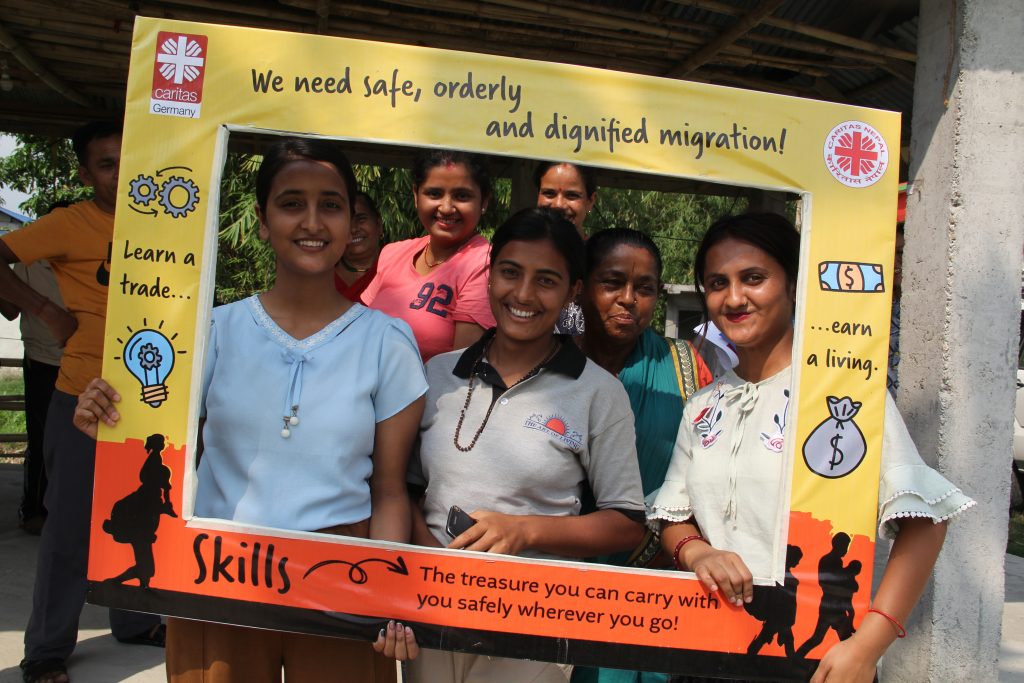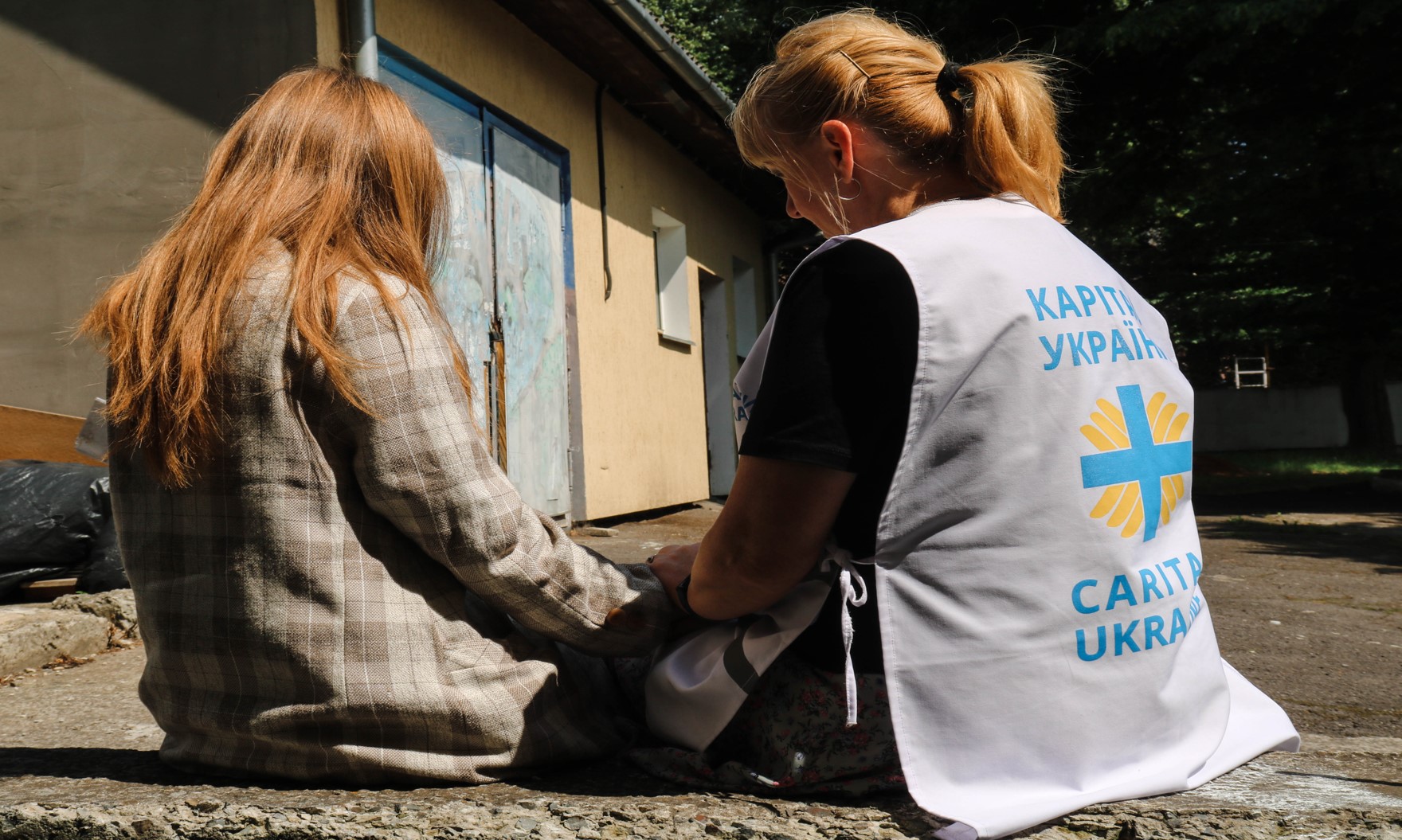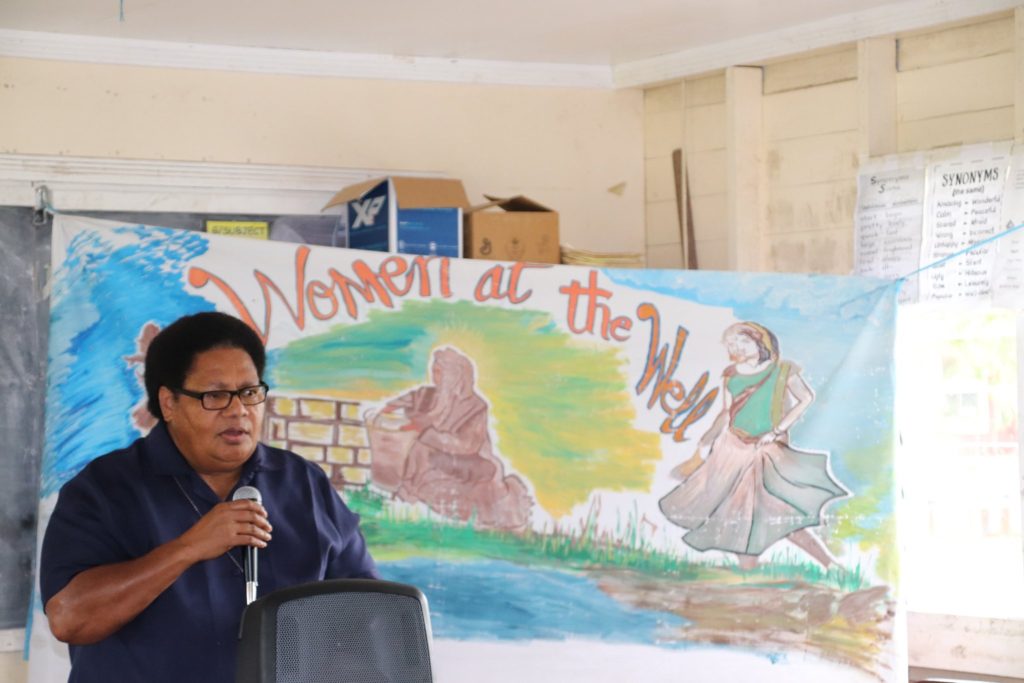On the International Day for the Elimination of Violence Against Women 2023 (November 25), Caritas Internationalis calls for an end to the pandemic of violence against women and girls which continues to pervade societies all over the world. Caritas envisions a just world in which all people experience the love, compassion and fullness of life. However, for the women and girls who are victims and survivors of violence, this vision can feel like a faraway dream.
Alistair Dutton, Secretary General of Caritas Internationalis, said: “Violence is clearly one of the major barriers which prevents women and girls from enjoying the fullness of life. Only by tackling harmful cultural behaviours and norms, promoting greater social support and financial autonomy, ensuring access to education, training and livelihoods, and ending cultures of impunity will violence against women be eliminated.”
Around the world, Caritas is working to play its part to ensure that violence can no longer be allowed to limit women and girls from reaching their full potential. Greater investments in safeguarding, strengthening institutions through policies and accountability, psychosocial and legal support, advocacy and prioritising the inclusion of women, their voices, perspectives and experiences through dedicated funding of programmes and projects from grassroots to global levels are just some of the ways Caritas carries out its mission to ensure the basic dignity of every human being is recognised and protected.
Read Caritas Internationalis’ Statement here
Caritas Projects Around The World
Africa
Caritas Nigeria is working with Christian Organizations Against Trafficking in Humans Network (COATNET) to assist victims of trafficking and modern slavery, who are subjected to physical and psychological violence, often while trying to seek a better life.
My name is Osaigbovo. I am 40 years old and I come from Edo state, Nigeria. In 2015, I decided to seek better opportunities abroad by taking the Agadez route with the hope crossing the Mediterranean to reach Italy. I received financial help from my cousin and also used my personal savings. The trip was perilous and in Libya I was kidnapped, tortured, and experienced starvation. Although I worked on various farms, I wasn’t paid for my labour.

Caritas Nigeria implemented a UNHCR-supported “Anti-Human Trafficking Activities in Mixed Movements” project in Etsako West of Edo (Photo Credit: Caritas Nigeria)
Asia
Caritas Nepal has stepped in to educate people about legal procedures, government documentation, job specifics, vacancy announcements, company names, and other crucial information related to foreign employment. They have made these aspiring migrants aware of the risks associated with unsafe migration.
Hundreds of people in Panchapuri VDC have been saved from falling into the traps of illegal agents via an awareness project titled Safe Migration of the most Vulnerable people through Awareness and Capacity Building (SAMVAB).
Ambika Khanal, a 25-year-old aspiring foreign worker and a single mother of two visited the Korean Agency with hope in her eyes, seeking to fly to Korea. She took out a large loan and paid her agent, trusting that it would secure her a job. Later, Khanal discovered that the agent had closed their company and vanished. Khanal reflects, “Who would willingly leave their home, family, and country to work far away if not to secure a better life for their children? How can I provide for my children now?”

“Ensuring safe Migration of the most Vulnerable people through Awareness and Capacity Building (SAMVAB) was developed to protect the rights of migrant workers. (Photo Credit: Caritas Nepal)
Europe
The war in Ukraine has exposed women to the dangers of violence, both as a weapon of war and during the journey out of Ukraine to seek safety and shelter. Caritas, together with partners such as COATNET, work to help women to heal from the physical and psychological trauma which this violence inflicts.
Maryna, a young woman from the Kyiv region, shared her harrowing experience: “I did whatever they told me to do in order to survive. They threatened and raped me. Those weeks felt like a year to me. One night, when there were no soldiers around for two nights, another girl and I managed to escape through a hole.” After receiving psychological, medical, and material assistance from Caritas, Maryna went to Bulgaria. She now works as a translator and says, “The compassionate and human approach of the Caritas staff highlights their professionalism. Thank you! I can now talk about my experience without tears and shame. I wasn’t the only one in such a situation, and it’s not my fault.”

Psychologists listen and share the burdens of women who have experienced violence due to the conflict in Ukraine. (Photo Credit: Caritas Ukraine)
Latin America and the Caribbean
In Ecuador, the problem of violence against women in interpersonal and family relationships is a major social concern. In July 2021, Caritas Ecuador began a project called, “Strengthening capacities for women’s groups and local institutions in Imbabura to actively participate in gender equality initiatives, women’s empowerment and/or prevention of gender-based violence”.
During the project, migrant women, Afro-Ecuadorians and the Kichwa population of the city of Ibarra, specifically from the cantons of Pimampiro and Otavalo, were trained in topics such as empowerment and the prevention of violence.
Juan Fernando García Delgado, President of the Ambuqui Parish Council, explains that “the presence of Cáritas here is important. The workshops are an opportunity to learn about the different types of violence, if that had been done before, it would be another reality for both the migrant and local populations in the community.”

Women have been trained in topics such as empowerment and prevention of violence during the six-month project. (Credit: Caritas Ecuador)
Middle East and North Africa
There are still many challenges which women face in Yemen, and unfortunately, because of the war and its wider impacts, there are no statistics about maternal and newborn mortality rates that would help medical services to plan better and actually provide preventative support.
Through five health centres, Caritas Poland is working to foster a relationship of confidence and trust with women in the community. The patients, and especially pregnant women who come to these clinics, receive something beyond health service. They receive a special kind of attention and support from women health professionals who give them care, attention and protection. They feel they are in a safe and secure place.
“There is a doctor that can provide general consultation for the patients. There is a gynaecological service for prenatal, postnatal care, the follow-up of pregnant women. There is also a pharmacy that provides medical and non-medical supplies, a laboratory and a nutrition service for the prevention of malnutrition. But all this is very modest,” says Marisol Martinez, Emergency Response Officer at Caritas Internationalis.

Medical services in the five clinics in the Aden governate are provided to patients free of charge (Photo Caption: Caritas Poland)
North America
Caritas is better able to support women who suffer violence and injustice through its extensive diocesan network. In the Diocese of Des Moines in the United States, the Catholic Charities Domestic Violence and Sexual Assault Program provides services to anyone faced with these issues through a 24-hour crisis phone line, emergency shelter, court advocacy, empowerment education, support groups, and outreach to under-served populations. We also work in area schools offering prevention programming.
“We provide various services including court advocacy, empowerment education, support groups and outreach to underserved populations. We also work in area schools offering prevention programming. Our ultimate goal for these clients is to help each family establish sustainable housing, financial security and empowerment for a healthy and successful future.”
Oceania
In 2020, Caritas Fiji held a three-day Women’s Ministry Workshop on Addressing Domestic Violence and Gender Injustice during COVID-19. Caritas Fiji’s First Responders programme is an example of a community-based protection initiative tackling violence against women, and is the first of its kind to address this issue from a faith-based perspective.
Through this initiative, volunteers were trained and supported to work together in their communities on exposing cultures of violence and building safe communities particularly during times of crisis. This initiative included both prevention and response activities and the involvement of male advocates.
“While it is true that women will be the hardest hit by this pandemic, they will also be the backbone of recovery in communities. Remember you are not alone in this fight for we are in this together,” said Sr. Mariana Tevurega, Coordinator for Women’s Ministry for Caritas Fiji.

Sr. Mariana Tevurega SM says women play a central role in keeping their families and communities safe and resilient. (Photo Credit: Archdiocese of Suva)
